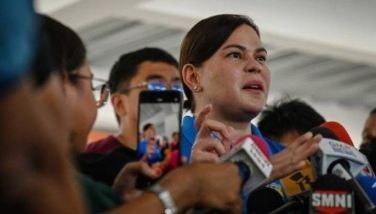Little known facts on Rizal as an agriculturist
MANILA, Philippines – National hero Dr. Jose Rizal, whose 146th birth anniversary is celebrated today,was an agriculturist among many other accomplishments. He held a Bachelor of Agriculture degree from Ateneo Municipal before enrolling at the Central University of Madrid.
He was also an extensionist, having organized Dapitan’s (Misamis Occidental) first association of farmers primarily to improve their farm produce and to help them find better markets.
He practiced development communication, gathering vital information and sharing them with farmers so they could improve their productivity. At one time, he sold abaca fiber in Manila to study its prices.
Rizal also held a degree in Land Surveying, which helped him understand agricultural land use.
These are among the lesser-known facets of Rizal’s brief but accomplished life that makes his example relevant even today.
Jose Protasio Rizal Mercado y Alonso Realonda was born in Calamba (now a city) in Laguna on June 19, 1861.
A scion of a landed family, he understood large-scale farming, and such background came in handy when he was exiled in Dapitan.
During the early part of his exile, Rizal acquired land from the Spanish government for his farm activities. Not satisfied with his small farm, he bought 16 hectares more of neglected land from various owners.
In just half a year, he had planted 5,000 pineapples and 1,400 coffee and 200 cacao trees on his land. Later, he purchased more land, which he planted with corn and abaca.
“The Philippines of Rizal’s time was agricultural and he knew that if his country were to prosper economically, idle lands must be rapidly transformed into productive ones,” states a report about his life as a farmer.
The national hero was also known as a natural scientist and played a key role in the identification of the Philippine snail that harbors the parasite that causes schistosomiasis, a deadly disease plaguing some areas in Eastern Visayas (Region 8).
The snail was scientifically named Oncomelania cuadrasi, after a certain Mr. Cuadrasi to whom Rizal sent his specimens of insects and animals for identification.
Cuadrasi was a known naturalist in Manila and the origin of the Philippine snail was Dapitan.
“Dr. Rizal was not a scientist by accident,” states a report titled “Rizal’s contribution to science and technology” attributed to the Los Baños-based Philippine Council for Agriculture, Forestry and Natural Resources Research and Development (PCARRD).
PCARRD is the sectoral planning body of the Department of Science and Technology (DOST) that coordinates, evaluates, and monitors agriculture, forestry, and natural resources research and development in the country.
Rizal intended to use education and science and technology to lift the Filipinos from ignorance and poverty, the report stresses.
“I have a big library. I shall have a house built on a hill. Then I shall dedicate myself to the sciences,” he had intimated to his Austrian friend, Prof. Ferdinand Blumentritt, in a letter in 1880.
Rizal gave full vent to his scientific expertise in Dapitan.
“Under modern judgment, what he did in Dapitan turned out to be practical expressions of integrated development programs in agriculture, ecology, and public health,” the PCARRD paper notes.
Also while in exile, he re-established connection with his scientist-friends.
He submitted specimens of mammals, birds, reptiles, insects, fish, and other invertebrates to the Dresden Museum. For this, he was recognized as a zoologist, and a frog (Rachophorus rizali), a beetle (Apogonia rizali), and a flying lizard (Draco rizali) were named in honor of him.
He also sent shells to Dr. A.B. Meyer, director of the Royal Saxony Ethnographical Institute, in exchange for much-needed books.
“Rizal was a respected member of the Anthropological and Ethnological Society of Berlin and the Geographic Society of Berlin. This membership in science organizations also provided the line of exchange of information that supported Dr. Rizal’s medical practice and the technological need of his varied projects,” the PCARRD report notes.
- Latest
- Trending




























